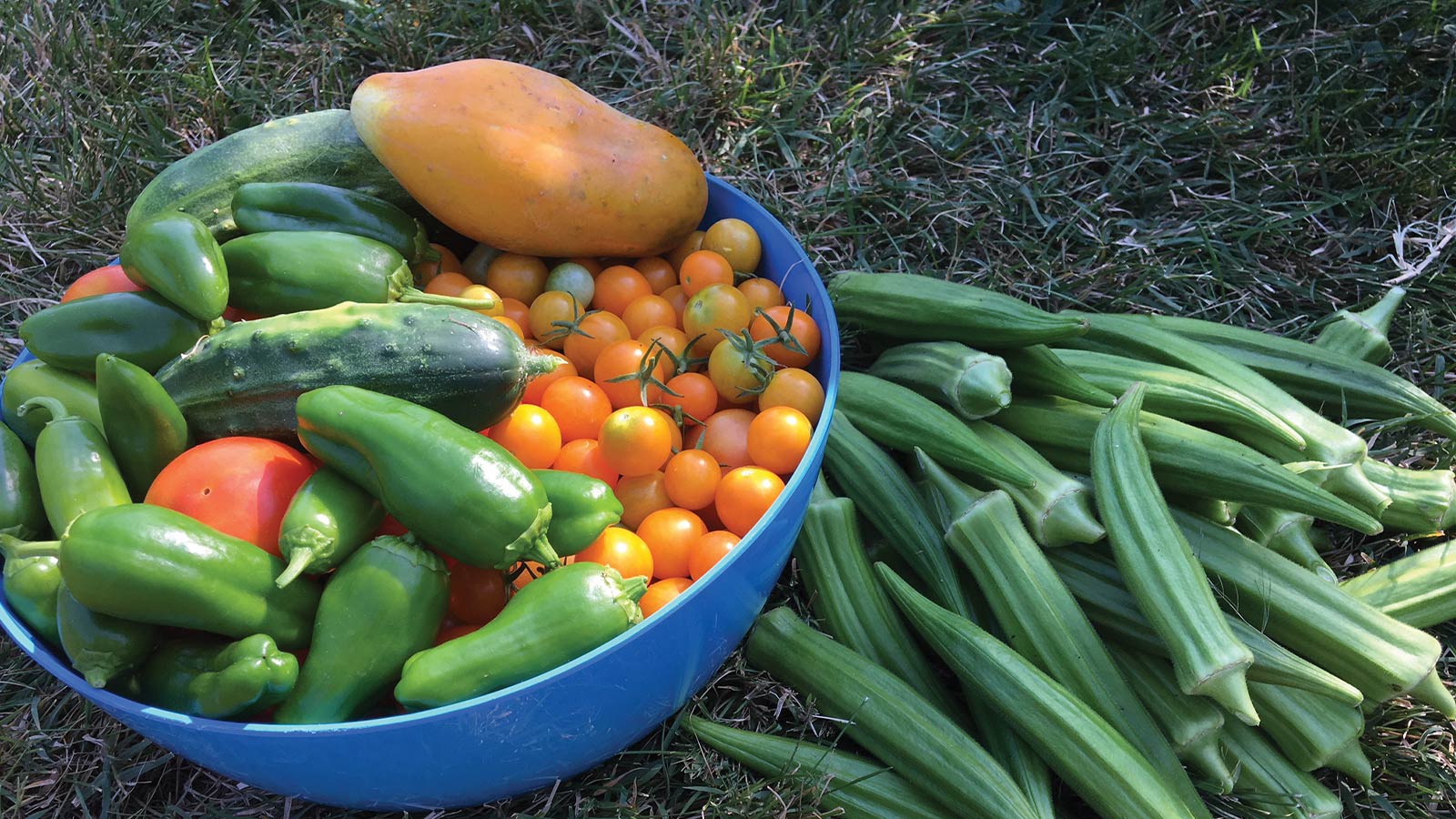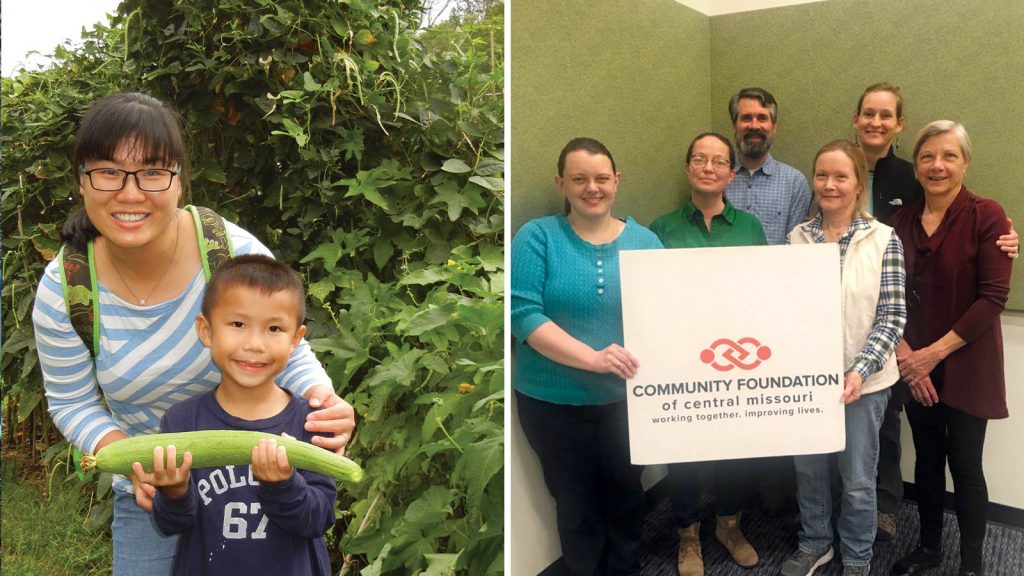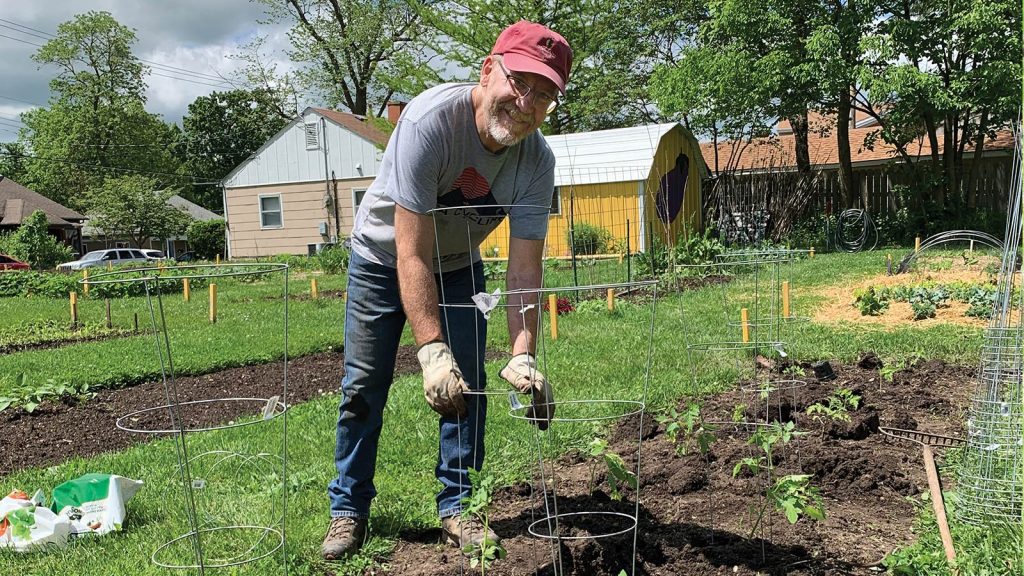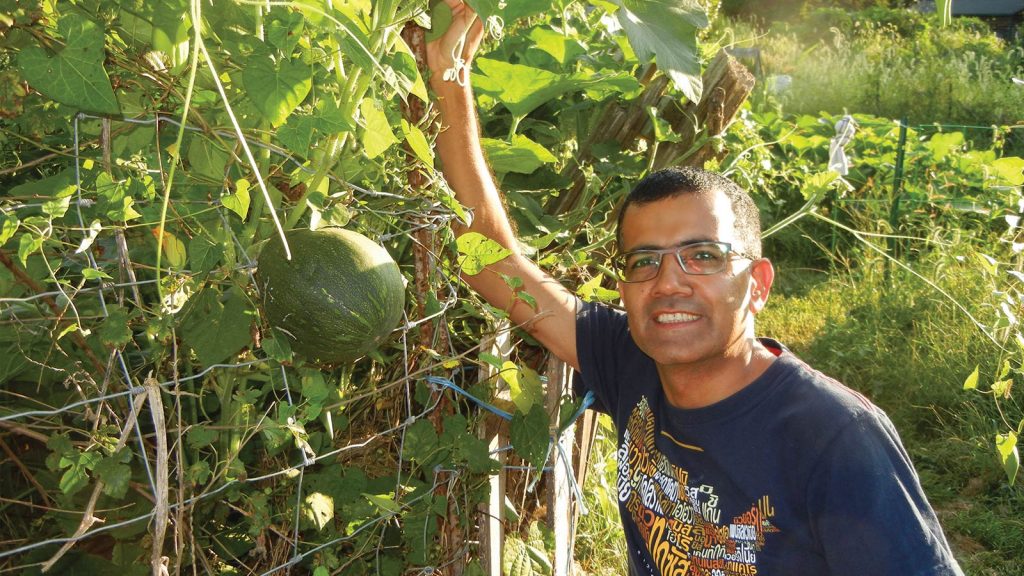Growing a Community

Kathy Doisy discusses the Community Garden Coalition and the importance of the nonprofit organization during the pandemic.
As the summer sun continues to beam down, nature becomes the community’s best friend. The farmers market is open, families celebrate the season with a gooey s’more, and the Community Garden Coalition, or CGC, works long hours in its garden plots to grow fruits and vegetables to enjoy with family, friends, and the community.
CGC is an all-volunteer, nonprofit organization that has helped Boone County residents grow their own fresh fruits and vegetables since 1983. When this organization was established, the members had one goal: to help the families that were food insecure around Boone County. In 2019, over 15% of Boone County residents were food insecure. The group of gardeners grew fruits and vegetables to help feed anyone that found themselves struggling to find food, from the elderly to children and everyone in between. CGC was there to help — and it still is.
While this continues to be the organization’s mission today, Kathy Doisy, president of CGC explains that the organization has expanded to be inclusive to anyone who wants to be a part of a community garden. “The reason we did this is we think it’s good for people of all walks of life to be brought together in this way to grow food,” Kathy explains. “It really helps to understand people — particularly people from other cultures.” Working in these garden plots with other residents from the community has built many friendships, and more importantly, it has shown these gardeners that despite being from different cultures, they’re all human.

How It Works
Starting in February of each year, CGC hosts the Spring Thaw. At this event, garden leaders from the organization sign up old and new gardeners for plots. The organization also offers several varieties of seeds for gardeners to choose from to grow in their own garden plot. For new gardeners, or for gardeners who want to expand their knowledge, educational information about gardening topics such as water conservation and cover cropping are available as well.
Once everyone is signed up for a garden plot, the organization hosts a cool-season distribution of cauliflower, broccoli, various types of lettuce, and more. Later, they hold a warm-season distribution with several different types of plants such as peppers, tomatoes, and squash, to name a few. What should be a simple day of distributing plants was much more of a challenge this year given social distancing guidelines. “It was the trickiest it’s ever been because of physical distancing, but we got a system together where we were still able to distribute plants,” Kathy says. Despite the obstacle brought on by the COVID-19 pandemic, the gardeners retrieved their plants and are giving them love and care as they wait to be harvested. Kathy notes that donations at these events, and even apart from the events, are always welcome but never required.
Gardeners are free to plant whatever they want to in their plots — so long as it’s legal. Being a trained entomologist herself, Kathy loves to promote native plants in gardens to help attract native pollinators such as mason bees.
“We have a lot of gardeners from all over the world, and many of them are growing plants that they can’t get here so they can grow food that they like from their home countries. Some of our gardeners even grow plants that are medicinal in our gardens,” Kathy explains.

For the Community
The produce that is harvested from these garden plots is distributed throughout the community. Some gardeners share their fresh produce with their family and friends or enjoy it their own. Some garden plots that are occupied by groups around the community donate all of the produce that has been harvested in their gardens to the food bank or other agencies. “Our effort is to get more healthy food into the community — to your friends, to an agency, or whoever it is you want to give it to,” Kathy explains.
Helping Boone County residents grow their own food is a big success in itself, but the achievements go beyond the healthy and fresh fruits and vegetables. As a result of these community garden plots, neighborhoods have become nicer and livelier, and they have improved the environment.
“We’re helping the community not just by giving people nutritious produce that they might not have access to otherwise, but we are also stabilizing neighborhoods,” Kathy explains. “When you know your neighbors, you’re a better neighbor.” The Community Garden Coalition isn’t just growing produce — they’re helping to grow a community.
Kathy notes that by taking old, abandoned lots around the community and filling them up with flowers, food, and people, the organization is helping to reduce the carbon footprint. “It’s a win-win all the way around. I just can’t think of anything bad about community gardening,” she says.

Gardening in a Pandemic
Like most things, CGC has been disrupted by the COVID-19 pandemic. While gardening isn’t cancelled, the organization has had to navigate how to have a successful season while following the physical distancing parameters. “Every garden has one or two garden leaders that oversee the plots. We couldn’t function without these people — they interact directly with each gardener,” Kathy says. These garden leaders, Kathy explains, have helped with the organization’s modified plant distribution, so gardening can continue.
As the pandemic continues and food shortages in grocery stores remain the new normal, gardening is more important now than ever before. Kathy explains, “People are really going to be relying on what they get out of their garden this year. And while this has always been true, this year as so many people lose their jobs, these gardens will be even more crucial.”
Community Garden Coalition
573-875-5995
P.O. Box 7051
comogardens.org
Additional Information
Founded: 1983
Mission Statement: The Community Garden Coalition provides support, supplies, and garden plots to community gardeners, seeking especially to help lower-income individuals, the elderly, people with disabilities, children, and others who might not be able to have a garden on their own.
Board Members:
Kathy Doisy
president
Jenny McDonald
vice president
Bill McKelvey
interim treasurer
Sarah Kendrick
Ann Marie Gortmaker
Kristin Hatton


